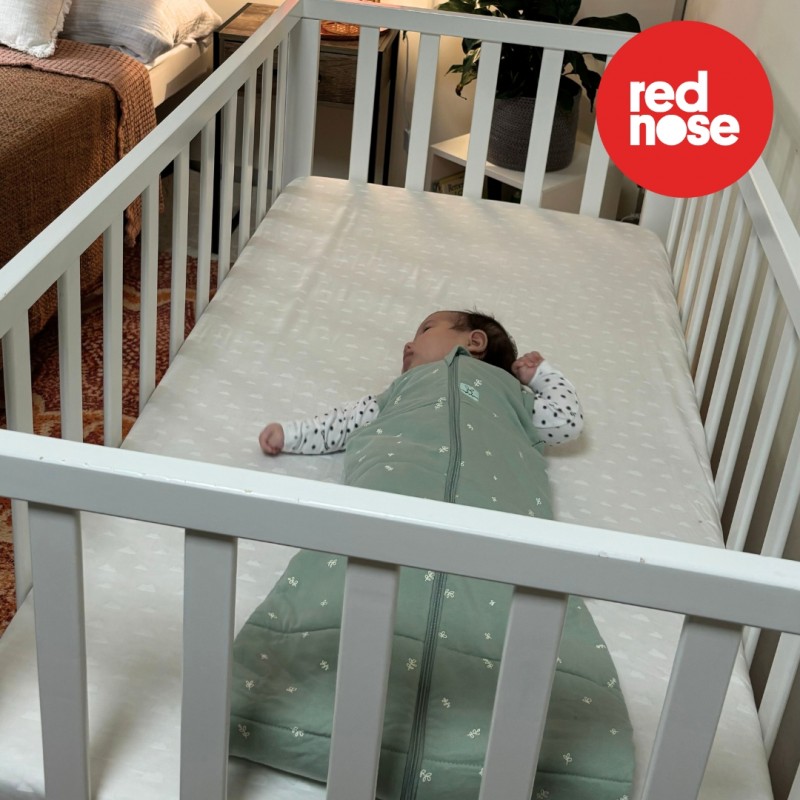Room sharing. Why does Red Nose advise parents to sleep in the same room as their baby for at least the first 6 months?
Room sharing reduces the risk of SUDI

Loren Rushton, Red Nose’s National Health Promotion manager says that research has shown that room sharing, not bed sharing, reduces the risk of sudden and unexpected death in infancy by up to 50 per cent.
“Room sharing reduces the risk of SUDI, therefore Red Nose recommends sleeping baby in their own safe sleep space in the same room as you ” Ms Rushton says.
“Sharing the same room with your baby means you are more likely to become in tune with your baby’s sleep patterns more intimately and can easily check on them, provide comfort and intervene quickly if there is a problem during the night,” Ms Rushton says.
“It also supports breastfeeding, as breastfeeding mothers tend to be highly responsive as a result of maintaining a lighter phase of sleep themselves.
Multiple studies have demonstrated that breastfeeding can significantly the risk of SIDS, with breastfed bubs being up to 50% less likely to die suddenly and unexpectedly.
Studies have also found sleeping in close proximity with your baby assists new mothers adapt to their new maternal role
However, for many of us, it can be a tight squeeze to fit a cot into your bedroom.
In that case, Ms Rushton says, you may prefer to use a bassinette, however keep in mind there is currently no mandatory safety standard for bassinettes in Australia.
“Bassinets should no longer be used once your baby is showing signs they are ready to start rolling, which can happen as early as 3 or 4 months of age. ” Ms Rushton explains. And, Ms Rushton says, if you really can’t share your room with your baby, make sure they are in a safe and secure cot in a room that is within close proximity to your own.
